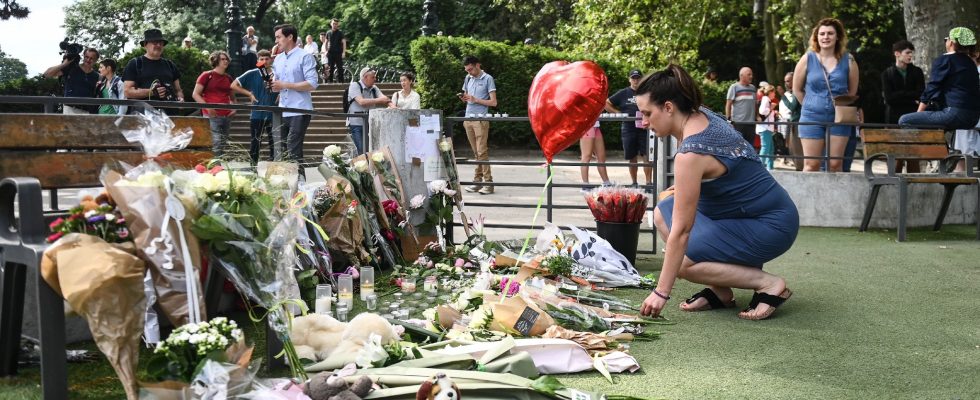France loves its heroes. The recent June 6 will have been the occasion to celebrate once again the men of the Kieffer commando who landed with the English and the Americans and of whom Léon Gautier, 101 years old next October, is the last survivor. Just read the Memoirs of Philippe Kieffer (green beret, 1948) or the story of Gwenn-Aël Bolloré (I landed on June 6, 1944) to put your finger on what this heroic courage is, the example of which our country likes to rediscover: physical courage, the fierce determination to defeat the blind power of the masses together, the ideal of a free fatherland where the life in peace is preserved by moral intransigence.
A few days after June 6 had been celebrated and Léon Gautier had received the warm homage of the marine commandos, the young Henri d’Anselme seemed in Annecy to awaken these buried virtues by taking the risk of chasing and scaring away the armed assailant who had just stabbed young children. Immediately, the media and public opinion decreed that he was not only a brave passerby, but a hero. It was because he too had dared, alone, to fight the blind violence inflicted on the weakest. The connection was made with Colonel Beltrame who, disarmed, offered his life to save that of a hostage. Or with Lassana Bathily, who faced with the Hyper Cacher terrorist saved several lives. Other names come to mind in the long line of individuals who suddenly took the side of justice, which is what each of us, instinctively, seems to had to be done, if only we had the physical courage to do so.
What is striking, each time, is that our society, which is said to be so fragmented, recognizes itself in the mirror of these acts carried out by one of us. While the question of good and evil, the legitimate and the legal, the licit and the illicit arises constantly in our daily lives, while we are all quite convinced that we live in a time of vaguely slack moral relativism , where no rule seems more general, no universal principle, where no act of anyone, in any field whatsoever, manages to achieve unanimity, suddenly the disputes fall silent and the tributes rain down. Heroism is an appointment with the obvious. Everyone who behaves heroically says it: “I couldn’t help it.”
Their modesty is the voice of the moral imperative which they have not had to discuss and which they do not have to justify. Heroism is the name we give to that which reveals what we all still believe in, but which we have covered with the mud of our differences. It reminds us that a compass guides us and that it is the same for all of us. It gives the measure of the values that in normal times we seek in vain, and the course of this collective that we are struggling to unify.
Heroism is part of a long tradition
But there is more. Today’s heroes unquestionably appear to us as such on foundations that have not changed for centuries. Also, heroism, when it appears, is not only the suddenly reconstituted cement of our scattered existences, but the rediscovered depth of the history that made us. This is how any heroic gesture is in fact part of the very long tradition of similar gestures, more or less grand, more or less decisive, which have been dubbed by their contemporaries and transmitted to us. This is how our society, sometimes, knows how to remember where it comes from. Obviously, we would not be in France if even the most obvious heroism did not attract the liveliest reserves of sleeping toads awakened by the rumor of general admiration. Their croaking serves as a definitive seal of the purity of heroism.
From this arise a thousand questions. What does our country do from day to day with this common substrate when there is no individual to vivify it by his sacrifice? What does our school do when it gives up transmitting the litany of our heroes in favor of the litany of our mistakes? What are our politicians doing when they tirelessly create divisions and quarrels where our virtues are damaged instead of building projects where they would be exalted? Yes, in the end, any heroic gesture awakens perhaps dangerous nostalgia for a dreamed-of past, but also and above all regret for all that it would be possible, by working on this common fund, to do together if we don’t We had not resolutely turned our backs on heroic virtues to greedily embrace the vices of discord.
* Sylvain Fort is an essayist
